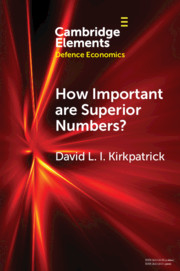1 results

How Important are Superior Numbers?
- A Reappraisal of Lanchester's Square Law
-
- Published online:
- 06 February 2021
- Print publication:
- 04 March 2021
-
- Element
- Export citation

